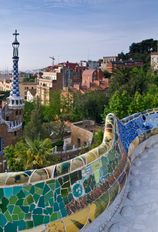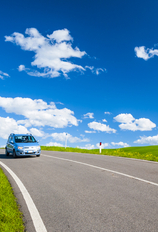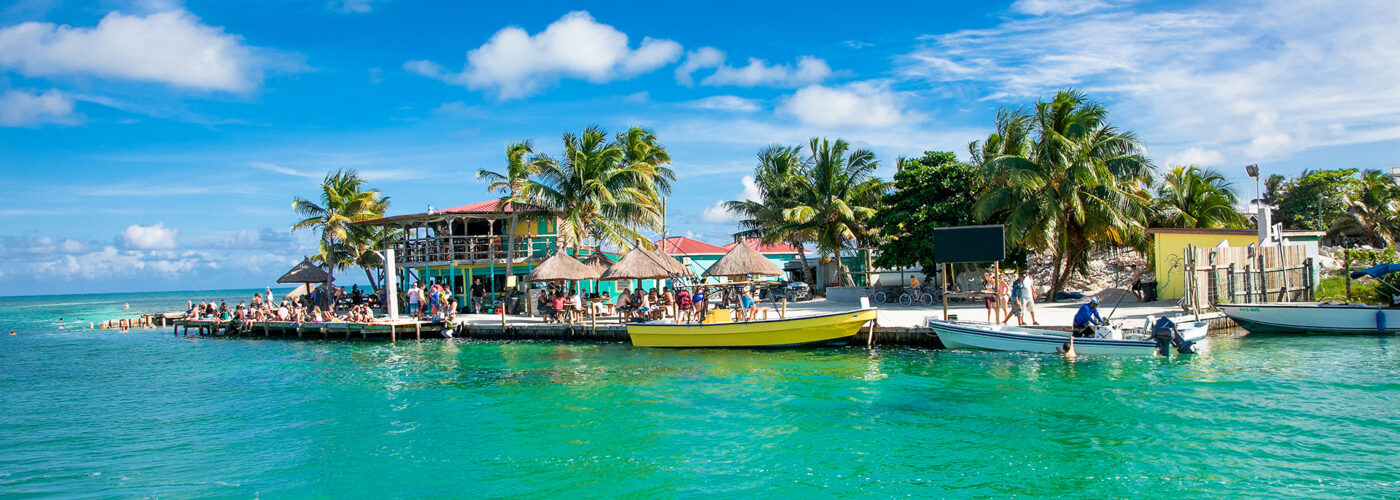Belize is a Central American country that’s relatively tiny—fewer than 500,000 citizens—but has big tourism, with more than a million cruise visitors and nearly 500,000 overnight visitors each year. English is the official language of this former British colony.
What draws those throngs of tourists to Belize? It’s the gorgeous wildlife, clear waters, rich hues, and lively culture. Also, Belize has largely avoided the rampant development to which many of its neighbor countries have capitulated; Belize’s government is committed to protecting its nation’s spectacular natural wonders so that travelers continue to come—and continue to bring their dollars with them.
But is Belize safe? Opinions range about whether Belize is dangerous; Canada’s government urges travelers to “exercise a high degree of caution” due to violent crime, while the U.K. government asserts that “most visits are trouble free.” As for the United States, its government recommends “increased caution” due to the Belize crime rate.
Indeed, Belize has the unfortunate distinction of having one of the world’s highest per capita murder rates. In particular, gangs operate near the Guatemalan border, which does happen to be near some tourist sites. However, the U.K. government notes that travelers are almost never affected by this gang activity, thanks to the Belize Defence Force’s regular patrolling of these dangerous areas.
Overall, the rate of major crimes is decreasing in Belize, especially wherever police presence has increased—Caye Caulker and Ambergris Caye, specifically, although the crime rate in Belize has increased along its western border and into the northern part of the country. There is “no recent history of terrorism in Belize,” and political protests tend to be nonviolent. However, the volume of confrontational crimes against tourists in Belize is rising, including armed robbery and theft, making Belize travel warnings more relevant than ever.
Tips for Staying Safe in Belize
- How dangerous is Belize? That depends on where you choose to go. Belize safety is highest in popular tourist destinations like Caye Caulker and Ambergris Caye. On the other hand, areas along the Guatemalan border, as well as parts of southern Belize City, are the most dangerous.
- Key information will help keep you safe, including knowing which are the poisonous spiders in Belize (see below), taking the typical precautions to deter thieves, and steering clear of places where the Belize crime rate is highest.
- Do not engage Belize prostitutes. It’s illegal to do so, and many of Belize’s sex workers do not take the proper medical precautions, can transmit contagious diseases, and are likely to be victims of sex trafficking.
Safe and Dangerous Places: Belize City, Ambergris Caye, and Beyond
In recent years, there have been some high-profile murders of U.S. citizens in Belize’s tourist areas, including in Ambergris Caye, Hopkins, and Corozal, although most of the incidents that have contributed to Belize’s increasing murder rate happened in and around Belize City.
Though caution is warranted in most of Belize’s tourist spots, it’s prudent to entirely avoid certain parts of the country, particularly parts of Belize City and areas near the Guatemalan border. As the U.S. Department of State advises, “Minimize travel to the south side of Belize City to official business only, and avoid personal trips due to gang activity. … Several tourist areas along the western border with Guatemala have active military patrols due to security concerns. Some excursions to view ruins on the western border with Guatemala require a military patrol.”
It’s worth noting, however, that the greatest decrease in the Belize crime occurred in the tourist-friendly areas of Caye Caulker and Ambergris Caye—though even when spending time in these regions, travelers should take steps to keep themselves and their belongings secure; Ambergis Caye safety is a contested issue and shouldn’t be taken as a given.
How to Get Around Safely in Belize
The Belize safety issues that you should be most aware of include pickpocketing, burglary, and hotel-room theft, all of which happen throughout Belize. You’re most likely to get victimized by petty thieves, however, whenever you’re in crowded tourist areas and on public transit; these types of miscreants are major contributors to the Belize crime rate.
Some tips for staying safe in Belize include keeping your hotel room door locked, including when you’re in there, and using your room’s safe whenever possible. Cooperate if you’re confronted by a thief. Stay away from deserted areas, don’t hitchhike, don’t buy or do drugs, don’t drink too much, and keep all valuables out of sight—or, better yet, leave them at home. (In particular, don’t leave anything valuable on the beach when you’re swimming.)
Don’t run a tab at bars, and try to keep your credit card within view, since “skimming” is a common scam that happens when bartenders or waiters steal credit card information during a legitimate transaction.
Note, too, that Belize’s roads, although they’re improving, are often in poor condition, and traffic fatalities remain a real danger in Belize, especially during the rainy season. Four cruise passengers died in separate vehicle accidents in late 2019.
Belize’s buses aren’t particularly safe either, as they’re often poorly maintained and drivers are notorious for unsafe passing.
Taxis—identifiable by their green license plates—are your safest option for getting around Belize, though you’ll want to insist that the driver does not pick up additional passengers during your ride, and negotiate the fare in advance, since there are no meters. Uber and Lyft do not currently operate in Belize.
As for natural disasters, it’s hurricanes and tropical storms that you should be wary of if you’re planning to travel to Belize. The region’s hurricane season spans from early June through late November, with September and October being the most heavily affected months. Although Belize does have a hurricane response plan, it’s considered insufficient should a Category 1 storm hit; resources would be quickly exhausted and roads are likely to flood, according to the U.S. State Department.
Another concern to keep in mind: poisonous spiders in Belize. Although wildlife is a key attraction here, some of Belize’s animals can be dangerous. (Editor’s note: There are a few disturbing images at this link.) Look out for spiders like black widows and brown recluses, amphibians like the poisonous dart frog, and snakes like the tommygoff, or fer-de-lance, which will often stand its ground rather than slithering away. Be careful where you step and use a flashlight when walking at night.
Prostitution in Belize and San Pedro
Belize is a transit country along known drug and human trafficking smuggling routes, and this increases the number of Belize prostitutes, many of them—especially foreign-born children and women—victims of the sex slave trade. In particular, San Pedro Town, in southern Ambergris Caye, is a Belizean stopoff point for drugs and trafficking.
Criminal organizations operating out of nearby Guatemala and El Salvador are responsible for much of Belize’s gang activity related to human trafficking, and the U.S. State Department has categorized Belize as a Tier 3 nation, meaning that the nation “does not fully meet the minimum standards for the elimination of trafficking and is not making significant efforts to do so.”
Any engagement with Belize prostitutes is highly inadvisable. Though prostitution is technically legal in Belize, contracting a sex worker’s services is not. And though enforcement remains weak (many officials look the other way), sex tourists still risk getting HIV, since testing here is strictly voluntary. They could also face severe legal consequences should officials decide to prosecute, and they contribute to a violent, corrupt system that condones human slavery. It’s not worth it.
More from SmarterTravel:
- Where to Stay in Belize: Lodging Tips You Need to Know
- The Best Places in San Ignacio, Belize
- How to Explore a Black Hole in Belize
—original reporting by Avital Andrews
We hand-pick everything we recommend and select items through testing and reviews. Some products are sent to us free of charge with no incentive to offer a favorable review. We offer our unbiased opinions and do not accept compensation to review products. All items are in stock and prices are accurate at the time of publication. If you buy something through our links, we may earn a commission.
Related
Top Fares From
Today's Top Travel Deals
Brought to you by ShermansTravel
Australia: 12-Night Melbourne, Cairns & Sydney...
Down Under Answers
 vacation
$4349+
vacation
$4349+
Athens to Barcelona: Luxe, 10-Night Mediterranean...
Oceania Cruises
 cruise
$3199+
cruise
$3199+
Pennsylvania: Daily Car Rentals from Pittsburgh
85OFF.com
 Car Rental
$19+
Car Rental
$19+




